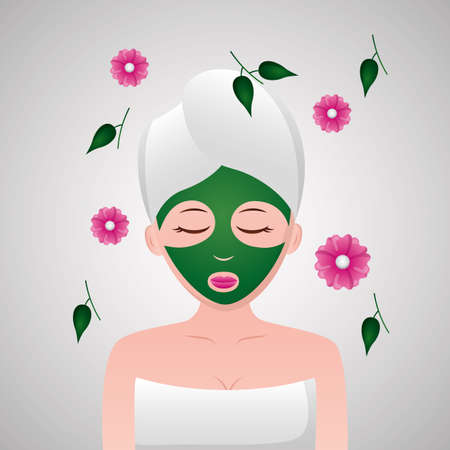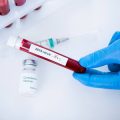1. Understanding Collagen and Skin Ageing
Collagen is a fundamental protein that provides structure, firmness, and elasticity to the skin. As the most abundant protein in the human body, collagen forms a crucial component of our connective tissues, supporting not only skin but also hair, nails, bones, and joints. In youthful skin, collagen fibres are dense and well-organised, which gives skin its plumpness and resilience. However, from as early as our mid-twenties, the body’s natural production of collagen gradually begins to decline. This depletion becomes more pronounced with age and is influenced by factors such as genetics, sun exposure, lifestyle choices, and environmental stressors – all of which are relevant concerns across Britain’s diverse climates and lifestyles.
For Britons in particular, the unpredictable weather and limited sunlight can have unique effects on skin health. While reduced UV exposure may lower some risks of premature ageing compared to sunnier climates, seasonal shifts and indoor heating can lead to dehydration and weakened skin barriers, exacerbating the visible signs of collagen loss such as fine lines, sagging, and dullness. Furthermore, pollution in urban centres like London can accelerate oxidative stress, further impacting collagen integrity.
Understanding the role of collagen in maintaining healthy, youthful-looking skin is therefore essential for anyone looking to counteract the visible effects of ageing. Addressing collagen depletion has become a key focus within Britain’s burgeoning skincare sector, driving innovation in both clinical treatments and advanced homecare solutions. In this comprehensive guide, we will explore the science behind collagen boosting treatments available throughout the UK and provide insight into how Britons can make informed decisions about their skincare regimens.
Popular In-Clinic Treatments in the UK
Across Britain, there has been a marked surge in demand for professional collagen-boosting procedures, as more individuals seek effective and scientifically backed solutions for skin rejuvenation. British clinics are renowned for their high standards and regulatory oversight, ensuring that patients receive safe and results-driven treatments. Below is a comprehensive overview of the most popular in-clinic options available nationwide, each tailored to the discerning expectations of the UK market.
Microneedling: A Staple for British Skin Clinics
Microneedling, often referred to as collagen induction therapy, is widely offered in reputable clinics throughout the UK. The procedure involves creating controlled micro-injuries to stimulate natural collagen production. It is particularly favoured by those seeking minimal downtime with noticeable improvement in skin texture, fine lines, and acne scarring. Many London-based dermatologists combine microneedling with topical serums or PRP (Platelet-Rich Plasma) for enhanced results.
Laser Therapies: Advanced Technology Meets British Standards
The UK boasts a diverse selection of laser technologies aimed at collagen stimulation, from fractional CO2 lasers to non-ablative devices such as Nd:YAG and Erbium lasers. These treatments are meticulously regulated by the Care Quality Commission (CQC), offering peace of mind to patients across England, Scotland, Wales, and Northern Ireland. Lasers deliver targeted energy deep within the skin’s layers, prompting a repair response and new collagen synthesis while addressing pigmentation and sun damage – key concerns among Britons given the country’s variable climate.
Injectables: Quick Solutions with Proven Results
Injectables remain at the forefront of non-surgical aesthetic trends in Britain. Collagen-stimulating injectables such as Sculptra and Ellansé are gaining popularity for their ability to gradually restore facial volume while encouraging endogenous collagen formation. British practitioners are trained to deliver natural-looking enhancements that respect individual facial anatomy and cultural preferences for subtlety.
A Comparative Glance at Popular Treatments
| Treatment Type | Main Benefit | Average Downtime | Typical Cost Range (GBP) |
|---|---|---|---|
| Microneedling | Smoother texture; reduced scars | 1-3 days | £200–£500 per session |
| Fractional Laser Resurfacing | Tightening; improved pigmentation | 5-7 days | £500–£1,200 per session |
| Sculptra/Ellansé Injectables | Gradual volumisation; long-term collagen boost | Minimal | £350–£900 per treatment |
Cultural Considerations in Treatment Selection
British clients often prioritise discreet yet effective interventions, valuing safety protocols and evidence-based outcomes. It is not uncommon for clinics to offer thorough pre-treatment consultations and aftercare advice tailored to local skin types and lifestyle factors prevalent across the UK. This commitment to personalisation underpins the growing trust in professional collagen-boosting services available nationwide.

3. Home-Based Solutions and Innovations
As the demand for convenient and cost-effective skincare continues to rise in Britain, home-based collagen boosting solutions have experienced a notable surge in popularity. This section analyses the range of at-home options available across the UK, from topical products to nutritional supplements and consumer-led tech treatments, highlighting their efficacy and relevance within British culture.
Topical Products: Creams, Serums, and Masks
British high street retailers such as Boots, Superdrug, and Marks & Spencer offer a broad spectrum of topical collagen-boosting products. These formulations often feature active ingredients like peptides, retinol, hyaluronic acid, and vitamin C, all of which claim to stimulate natural collagen production. Consumers in the UK are increasingly seeking out serums and overnight masks that fit seamlessly into daily routines. While clinical evidence supporting dramatic results varies, these products are prized for their accessibility and ease of use.
Supplements: Tablets, Powders, and Drinks
The supplement market has seen a rapid expansion with British brands like Holland & Barrett leading the way in collagen-based offerings. Marine collagen powders, bovine-derived tablets, and ready-to-drink shots are widely stocked on high street shelves. Many Brits incorporate these supplements into their morning rituals or post-gym routines, driven by emerging research suggesting potential benefits for skin elasticity and joint health. However, it is important to note that scientific consensus on oral supplement efficacy remains inconclusive—so expectations should be set accordingly.
Consumer-Led Tech Treatments
Innovative at-home devices such as LED masks, microcurrent facial tools, and microneedling rollers have become increasingly accessible through both online platforms and beauty retailers throughout Britain. These gadgets promise professional-level results without the need for salon appointments, appealing particularly to tech-savvy consumers keen on self-care. While initial studies indicate potential improvements in skin texture and firmness when used consistently, users should exercise caution by adhering strictly to manufacturer instructions and NHS guidance to avoid adverse effects.
Cultural Considerations
In the context of British lifestyle trends—where convenience and self-reliance are highly valued—at-home collagen boosting solutions represent a pragmatic approach to skincare. The widespread presence of these products on local high streets ensures that effective options are accessible regardless of location or budget. As technology advances and public awareness grows, it is likely that home-based treatments will continue to shape the future of non-invasive skincare across Britain.
4. Natural and Holistic Approaches
Across Britain, there has been a marked shift towards natural and holistic methods for enhancing collagen production, reflecting both a growing interest in preventative health and the nation’s appreciation for balanced living. Many Britons are turning to lifestyle adjustments, targeted dietary choices, and non-invasive practices to support their skin’s vitality without resorting to clinical interventions.
Lifestyle Factors Favouring Collagen Health
The foundation of naturally boosting collagen lies in everyday habits. Prioritising adequate sleep, managing stress through mindfulness or yoga, and regular physical activity are widely endorsed by UK health professionals for their synergistic effects on skin regeneration. In particular, outdoor activities such as rambling in the countryside or cycling have gained popularity as ways to promote overall well-being while supporting collagen synthesis via improved circulation and reduced oxidative stress.
Dietary Strategies: What’s Popular in the UK?
Diet plays a pivotal role in collagen maintenance, with many Britons embracing nutrient-rich foods that naturally stimulate its production. Below is a summary of key food sources incorporated into British diets:
| Nutrient | Common British Sources | Role in Collagen Support |
|---|---|---|
| Vitamin C | Blackcurrants, Strawberries, Kale, Broccoli | Essential for collagen synthesis and antioxidant protection |
| Protein (Amino Acids) | Salmon, Eggs, Lean Beef, Lentils | Provides building blocks for collagen fibres |
| Zinc & Copper | Pumpkin seeds, Chickpeas, Shellfish | Supports enzyme activity needed for collagen formation |
| Antioxidants | Green tea, Dark chocolate, Berries | Protects existing collagen from free radical damage |
Non-Invasive Practices Gaining Traction in Britain
Away from invasive treatments, a host of gentle options are being embraced by those seeking a more natural approach. Facial massage—particularly using jade rollers or gua sha tools—has seen a surge in popularity across spas and homes alike due to its ability to boost microcirculation and encourage lymphatic drainage. Additionally, topical products containing naturally-derived ingredients like rosehip oil or sea buckthorn are favoured for their nourishing properties and subtle support of the skin barrier.
The British Approach: Mindful Balance over Quick Fixes
This preference for holistic wellness reflects broader cultural values within the UK, where sustainable results and long-term health often take precedence over rapid transformations. By weaving together lifestyle modifications, conscious nutrition, and non-invasive skincare routines, Britons are cultivating a culture of self-care that prioritises not just youthful skin but overall vitality.
5. Trends and Regulatory Landscape in Britain
The British aesthetic industry has witnessed a marked surge in the demand for collagen boosting treatments, mirroring global interest yet shaped by distinct local preferences and regulatory standards. As consumer awareness around skin health and anti-ageing solutions grows, UK clinics and practitioners are increasingly adopting advanced technologies and evidence-backed procedures.
Emerging Market Trends
Across Britain, there is a notable shift towards minimally invasive collagen enhancement therapies. Treatments such as microneedling, radiofrequency devices, and injectable biostimulators are gaining favour due to their efficacy and reduced downtime. Furthermore, British consumers are displaying a preference for natural-looking results, prompting providers to focus on gradual improvement protocols rather than dramatic transformations. Personalisation is another key trend, with clinics offering bespoke treatment plans tailored to individual skin types and concerns.
Regulation Compliance in the UK
The UK maintains rigorous regulatory frameworks for aesthetic treatments, overseen by bodies such as the Care Quality Commission (CQC), Medicines and Healthcare products Regulatory Agency (MHRA), and the General Medical Council (GMC). These organisations ensure that collagen treatments adhere to strict safety standards, particularly when it comes to injectable products or devices that stimulate collagen production. Only licensed professionals are permitted to administer certain procedures, safeguarding patient outcomes and maintaining public trust.
Safety Considerations and Patient Education
Due diligence around product sourcing, practitioner credentials, and clinic registration is paramount in Britain. The increasing popularity of at-home collagen devices has prompted regulators to issue guidelines concerning their safe usage. Additionally, patient education is a central component of ethical practice in the UK; reputable clinics provide comprehensive consultations detailing risks, realistic expectations, and aftercare protocols. This transparent approach aligns with the broader shift towards informed consent and patient empowerment within the British health and beauty sector.
Looking Ahead: Evolving Standards
As scientific research continues to drive innovation in collagen therapies, British regulations are expected to adapt accordingly. Ongoing professional training requirements and updated clinical guidelines will further reinforce the safety and efficacy of collagen boosting treatments across the UK market. For consumers seeking these services, selecting CQC-registered clinics staffed by medically qualified practitioners remains the gold standard for optimal results and peace of mind.
6. Choosing the Right Treatment: Expert Advice
Navigating the world of collagen-boosting treatments in Britain can be overwhelming, given the wide array of options available across clinics, salons, and home-use products. To help you make an informed decision, UK skincare specialists recommend a strategic approach rooted in professional guidance, realistic expectations, and a clear understanding of your personal needs.
Consultation with Qualified Practitioners
Before embarking on any collagen-boosting treatment, it is crucial to seek a consultation with a qualified dermatologist or aesthetic practitioner registered with the General Medical Council (GMC) or an accredited body such as the British Association of Dermatologists. These experts will conduct a thorough assessment of your skin type, medical history, and specific concerns to determine the most appropriate interventions for you.
Evaluating Treatment Options
Not all collagen treatments are created equal—what works for one individual may not suit another. British experts advise considering factors such as:
- Desired outcomes: Are you aiming for subtle rejuvenation or more dramatic results?
- Treatment downtime: Can you accommodate recovery periods, or do you prefer minimal interruption to your routine?
- Sensitivity and safety: Do you have allergies or sensitivities that might limit certain procedures?
Setting Realistic Expectations
UK specialists emphasise that while collagen-boosting therapies can significantly improve skin texture and elasticity, results vary between individuals and often require multiple sessions. Maintenance treatments may also be necessary for sustained benefits. Understanding these nuances helps prevent disappointment and ensures satisfaction with your chosen approach.
Personalising Your Collagen Journey
The most effective strategy combines professional treatments—such as microneedling, radiofrequency devices, or injectable stimulators—with tailored at-home regimens like high-quality topical peptides and SPF protection. Many British clinics offer bespoke treatment plans that address both immediate goals and long-term skin health.
Your Next Steps
To summarise, investing in a consultation with a reputable UK skincare specialist is the best starting point. With their expert advice, you can confidently select a collagen-boosting treatment pathway that aligns with your lifestyle, expectations, and unique skin profile—ensuring safe, effective, and natural-looking results.


